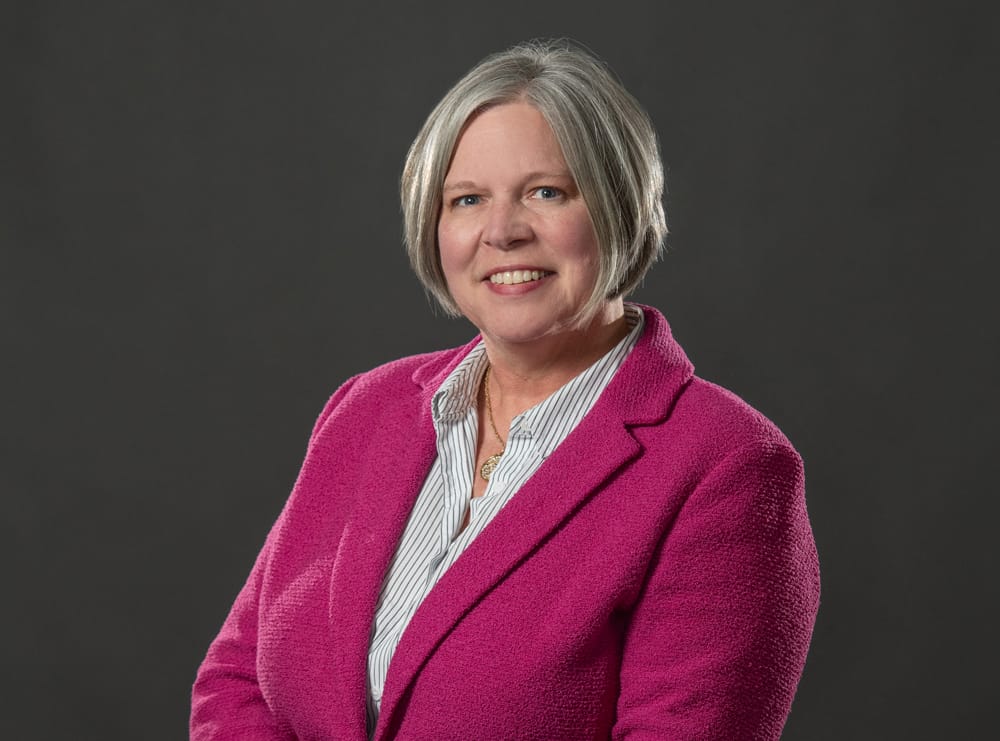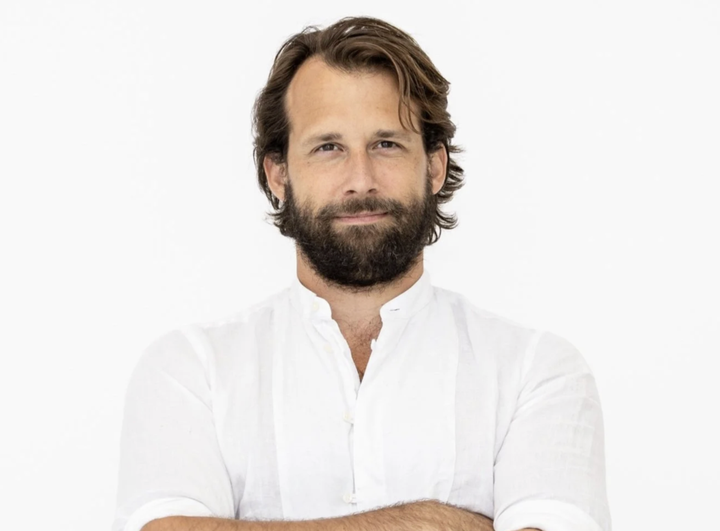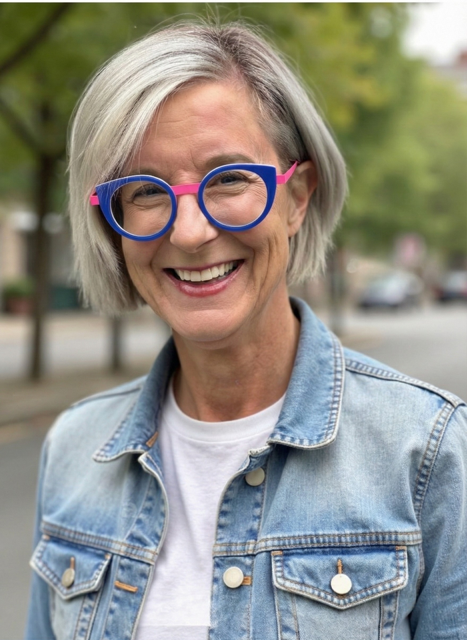Staypineapple Hotels' Dina Belon on authenticity, community and the future of boutique hotels
A version of this story first appeared in the Mint Pillow newsletter. To get it in your inbox, sign up for free by clicking here.
By Jennifer Glatt | for Mint Pillow
Dina Belon is the ringleader of all things delightfully unexpected at Staypineapple Hotels.
As president of the independent brand, she makes sure every stay feels like the perfect mix of bold, quirky and thoughtful. Twice named among the Top 50 Women Leaders in Hospitality and a member of the Independent Hotel Show board, she has been honored by leading industry publications for her service and impact across the hospitality sector.
Beyond the accolades, Belon is a passionate champion of independent hotels, proving they can deliver unforgettable guest experiences, thrive on individuality and lead the way in shaping the future of hospitality.
What is it about independent hotels that keeps you so inspired and committed?
It’s about innovation, adaptability and personal expression—the ability to maintain a strong brand point of view while also adapting and customizing to each guest’s preferences and needs. It means staying flexible, responsive and consistently operating on the bleeding edge. I worked in brands most of my career... I had never worked in a boutique hotel at all, or in the boutique or independent space, until I joined Staypineapple 10 years ago. Once I got it, I was like, 'Oh, this is so freeing!' This allows expression on a level that you just can't accomplish in a JW Marriott or an AC or a Hilton, you just can't. It's not the business and it's not the business model. So that's what keeps me coming back.
Prior to Staypineapple, I had never worked anywhere longer than six years, mostly because I got bored, and I moved on to try to find something new and interesting. I've never lost being interested at Staypineapple; every day I come to work and I'm excited to be here, and it's fun and it's engaging. We also have a culture of fun. Work should be fun. We're here way too much, we work way too hard not to enjoy it. It's a big part of who we are, and I just love it.
You now serve on the board of the Independent Hotel Show. What motivated you to take on that role, and what impact do you hope to make?
I believe strongly in the power and the potential of the independent and boutique hotel space. I think it's a sector that innovates and where genuine connection is paramount. We can be a guiding light to what the hospitality industry as a whole can do.
Even the JW Marriott, which has 800 rooms, could pick up some tips from the boutique space, right? There are some ideas that they could, even in their standardized process, elevate. And I think that's important.
For me, service on the board is important because I think the hotel industry has a very unique opportunity, particularly now, post-pandemic. The human race needs connection and human interaction and that sense of belonging more than ever, and I think the hospitality industry has the opportunity to be a key factor in that and really provide community.
At Staypineapple, we're not just about our guests, we're also about the community that our hotel sits in. We're in big cities, top 25 markets, and we're mostly in city center locations, but all of our locations have residential around us. It's often high-rise residential—again, very disconnected residential. This is partially my view. I grew up very rural. I was born in Alaska, and I grew up in Oregon in a very small town—an everybody-knew-everybody kind of space, and I see society getting more and more disconnected from each other, particularly in city centers. I think the hotel industry has a small part to play to be a community hub and a place where people can come and gather and enjoy each other and just connect.
To me, that is something that boutique hotels do exceptionally well and can teach the rest of the market. I worry that with all the trends in the industry of boutique hotels, particularly independent brands being gobbled up by the bigger brands and then getting diluted, the concept of what they were is being lost and, subsequently, the business model of independent hotels being so difficult, the loss in the United States could be great over the next 10 years. I see on the horizon 30% of the industry getting smaller and smaller and smaller, and I'm afraid of that.
So, I sit on the board of the Independent Hotel Show. I am also the chair of the Independent/Boutique committee for the American Hotel & Lodging Association. I sit on the board of AHLA, raising my voice and representing the independent and boutique hotelier—often quite loudly! I'm really passionate about this. We're a very purpose-driven organization, I'm a very purpose-driven person individually, and boutique hotels and the impact we make on people is a purpose for me.
Is there a single experience—either as a guest or in your early career—that influences the way you approach leadership and guest service today?
I spent most of my career learning that standardization was the key to success and a core expectation for brands. So, when a guest stays at a Marriott Courtyard in the middle of Alabama or in the city center of Chicago, it doesn't matter—they get the same product, and that is a very good business model for a lot of people, for a lot of consumers, particularly in the United States. I'd not spent much time in my life in Europe, and I hadn't really experienced a kind of European hotel philosophy, which is a lot more unique, character-driven, creating community and belonging. It took me at least two years, probably three working here, before I really got it, but that was a moment of clarity, understanding boutique hotels were not just smaller, but a completely different business model.
What unique strengths do independents bring to the table when it comes to building loyalty and leaving a lasting impression?
They're really focused on relationship service rather than transactional interaction. And that sounds easy, but the way to do that is to hire for emotional intelligence and critical thinking and teach technical skills. We let team members be creative, get out of their way and let them do it the way that feels natural to them.
So, one team member may greet people coming into the hotel one way and another one another way... and then they start building a relationship, and they start creating a bond and a sense of friendship with the guest. What is great is the feeling of belonging, like, ‘This is my space. This is my sofa. This is my living room. This is my bar. This is my bartender.’ That feeling, it's so esoteric. I know it's hard to explain, and you can't put it in a manual. Its authenticity.
How do you define personalization right now—and what does it look like in practice at Staypineapple?
We are anti-scripts. In fact, on occasion, we have team members ask, ‘Could you tell me how to say that?’ And the statement is always, ‘No, but I can tell you how I would do it, but you need to find your own groove. You’ve got to find your own natural way to do it, because if you just mimic me, then it's not going to feel authentic for you, and it's not going to come across authentically to the guest.’
We have no uniforms. We don't have hair policies. You can have all the piercings you want. You be you. We hired you... why would I then turn around and put you in a navy blazer and make you do your hair a certain way and only wear one set of earrings? That doesn't make any sense. We let them be them, and if we have to correct something—because mistakes are going to be made—we come in and say, ‘Hey, maybe there was a different way to say that, or maybe there was another opportunity.’ Did that guest just say something to you that was a cue that we could have used to do something interesting?
It's a quirky, strange, unorthodox way of functioning, but it is exceptionally powerful and is the key to how we take advantage of that focus on relationship rather than transactional interaction mentality that is so unique to the independent and boutique space.
How do you marry imaginative, memorable experiences with the realities of operating a lean business?
Our tech stack change-out in 2024 has been a critical part of our efficiency model, so we run as a very high-touch personalized service business and a pretty lean team at our hotels. It’s critical that they have a limited scope of work for their job, and that scope of work is what's really important, and that we not laden them down with other stuff. We've had a centralized model from the beginning of our company, 15 years ago. The model works really well to support boutique hotels.
One of the biggest challenges for boutique hotels is the expense burden that sits on a single hotel. We're growing as a brand—we started as an owner operator—and we are moving, over the next five years, to an asset-light model, supporting the boutique and independent space in having a brand that can help do the back-office things—the revenue management and sales and distribution and digital marketing.
As the industry has evolved, that side of the business has gotten really complicated and difficult for an independent hotelier to compete. So, we have found the through-line for the brand is twofold. One is really that service model, that high-touch, personalized service, and all the culture that it takes to deliver that. The other piece of that is the economics of it. We're delivering 45% GOP and 35% NOI, which is as good as a branded hotel, because we're able to spread the expense of the back office over multiple hotels.
Exceptional service is hard to sustain. How do you inspire your teams to consistently deliver the warmth, intuition and attentiveness that guests remember?
Emotional Intelligence is the key to that piece. It's really about hiring the right people. Then we create an environment that encourages them to be themselves and bring their whole self to work. The idea of the vulnerability, of being yourself at work—some new hires are not comfortable because it’s vulnerable. They don't have a mask to put on.
The other element is our centralized back-office services. Everything that is not a guest or team member experience is at our home office in Bellevue, Washington. The general managers, the front office managers, the food and beverage managers, housekeeping managers, everybody at the hotel who is in the operation every day working with guests and team members, so it frees up a lot of their time. Again, removing transaction or mundane or report writing or whatever that is off of the people that are supposed to be hoteliers, and let them be hoteliers.
That is the critical element, I think, that we do to keep team members inspired, is modeling it. Our general manager is out in the lobby of the hotel all the time, modeling the behavior and setting the example and allowing team members to have their own creativity. The more you allow team members to be creative, the more they will be creative.
Thanks for reading today's edition! You can reach the newsletter team at newsletter@mintpillow.co. We enjoy hearing from you.
Interested in advertising? Email us at newslettersales@mvfglobal.com
Mint Pillow is curated and written by Jennifer Glatt and edited by Lesley McKenzie.





